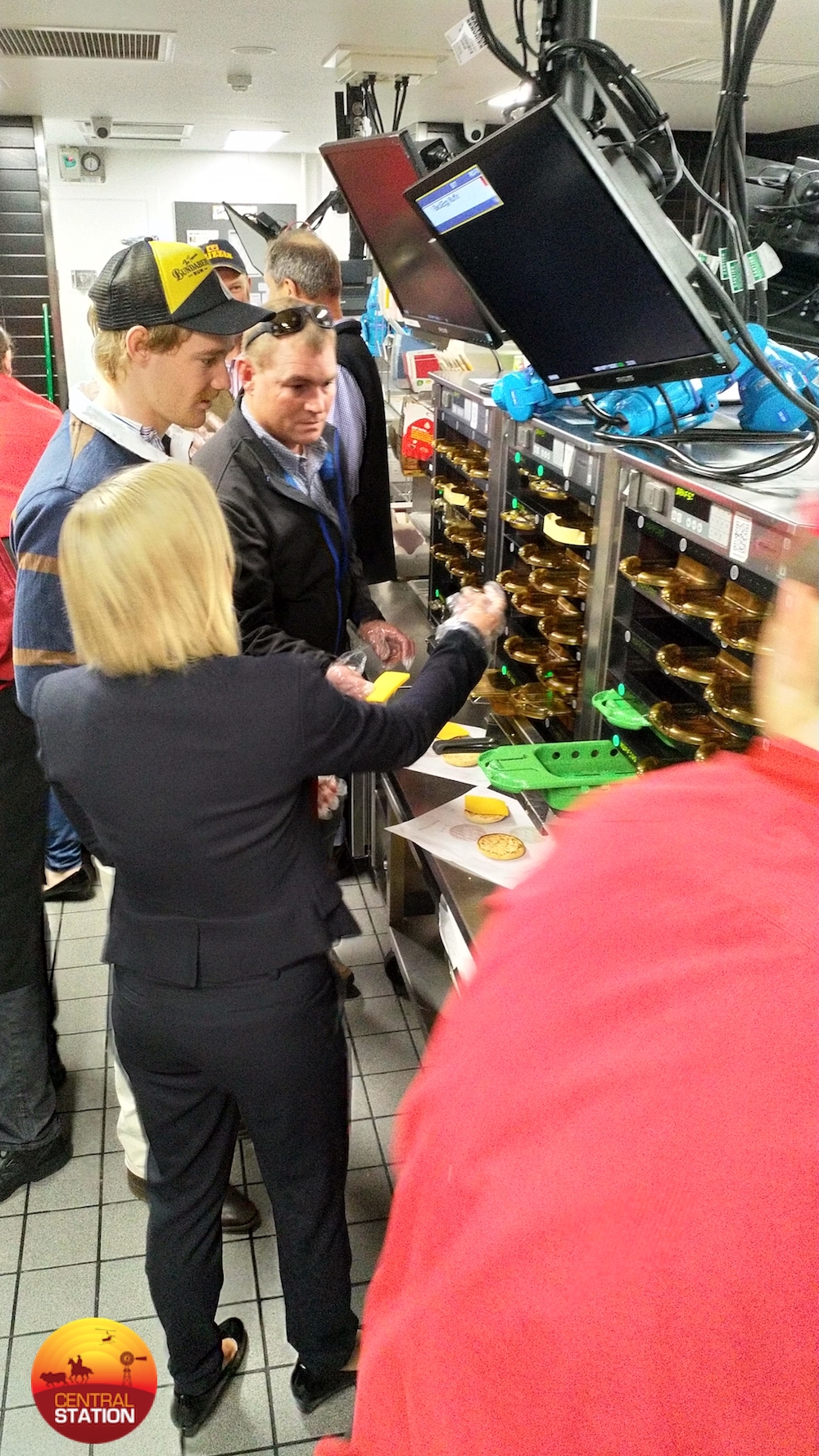Proving our sustainable credentials to consumers
Host: AgForce Queensland
Written by Cass Heal, AgForce Projects Co-ordinator.
AgForce has been the unifying voice for Queensland’s beef, sheep and grain producers since 1999. Our strength continues through our membership and a strategic vision to secure the productivity, profitability and sustainability of the agribusiness sector. AgForce has approximately thirty staff based in Brisbane and regionally around Queensland.
Growing up on a farm in the wheatbelt of WA I never considered that we, as an industry, would ever have to prove that we are sustainable. After all, who would doubt that farmers do it out of love – love for their animals and love of their land. However, over the last few years Australia’s farmers have been under increasing pressure from their customers to prove that we are sustainable. It is a word that has many meanings to many different people, for clarity AgForce’s purpose is to ‘Advance sustainable agribusiness.’ AgForce believes that sustainable agriculture integrates three main pillars – these are being environmentally sound, being economically viable, and being socially responsible. Agricultural sustainability means that we can meet the needs of the present without compromising the ability of future generations to meet their needs.
In my role as the AgForce Projects Coordinator for the grazing and grains best management programs my days are filled with talking to State Government departments, Natural Resource Management Groups and meeting passionate producers. I have a wonderful opportunity to hear all the great stories about the world class practices that Queensland beef, sheep and grain producers have adopted and how their businesses are sustainable, both socially, environmentally and economically.
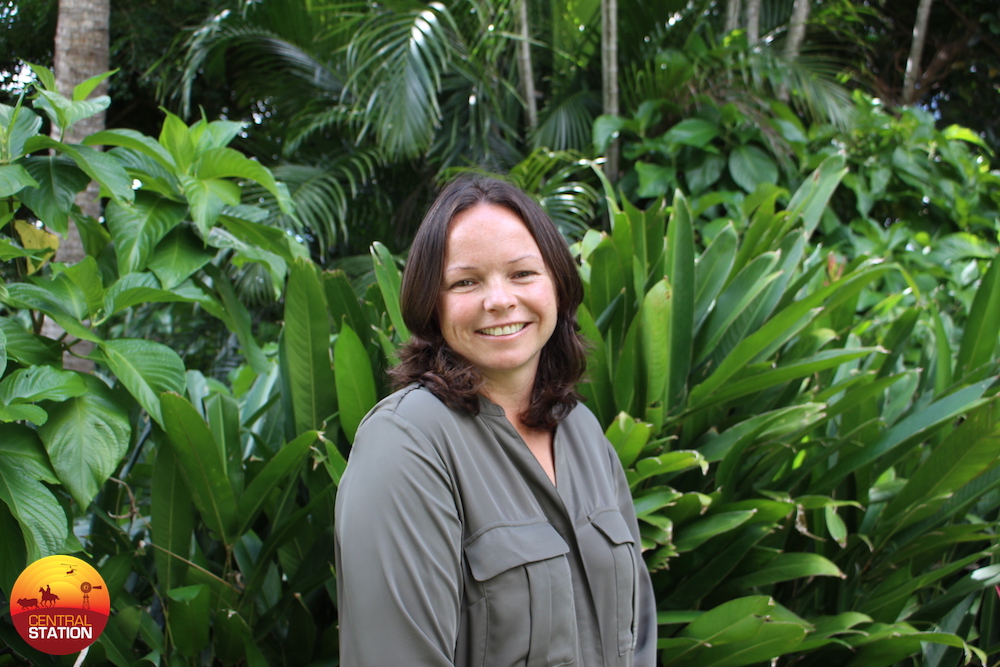 AgForce Projects Coordinator Cass Heal.
AgForce Projects Coordinator Cass Heal.
I meet Graziers like the Hanson’s who came to grazing as a second career and have taken to it like ducks to water. In the six years since Leslie and Craig moved full-time to “Perseverance” near Kandanga, they have transformed their property by adopting practices like cell grazing and organic practices like spreading bio-char. Cell grazing is when small paddocks are created and then heavily stocked for short periods of time, followed by long spelling, to ensure equal forage grazing.
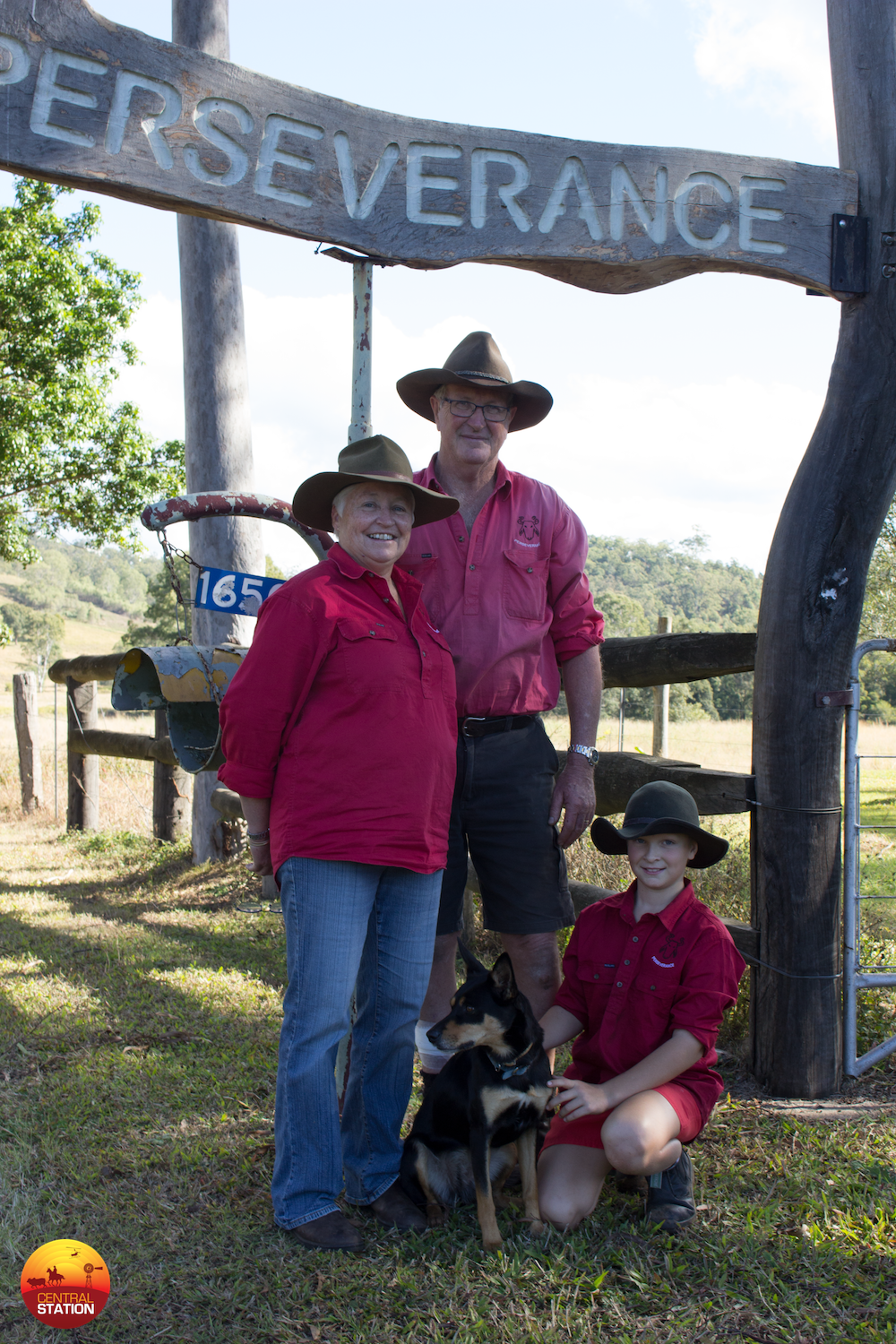
The changes they have adopted have made a huge difference to their lands soil and water health. The Hanson’s credit the success of their operation to “never getting sick of learning”, and after meeting them and seeing their property I can see that a lot of what they have achieved has been due to their enthusiasm, for animals, the environment and doing the best job they can. Part of that was achieving their Grazing BMP accreditation in 2016, which shows that their management practices are of industry or above standard.
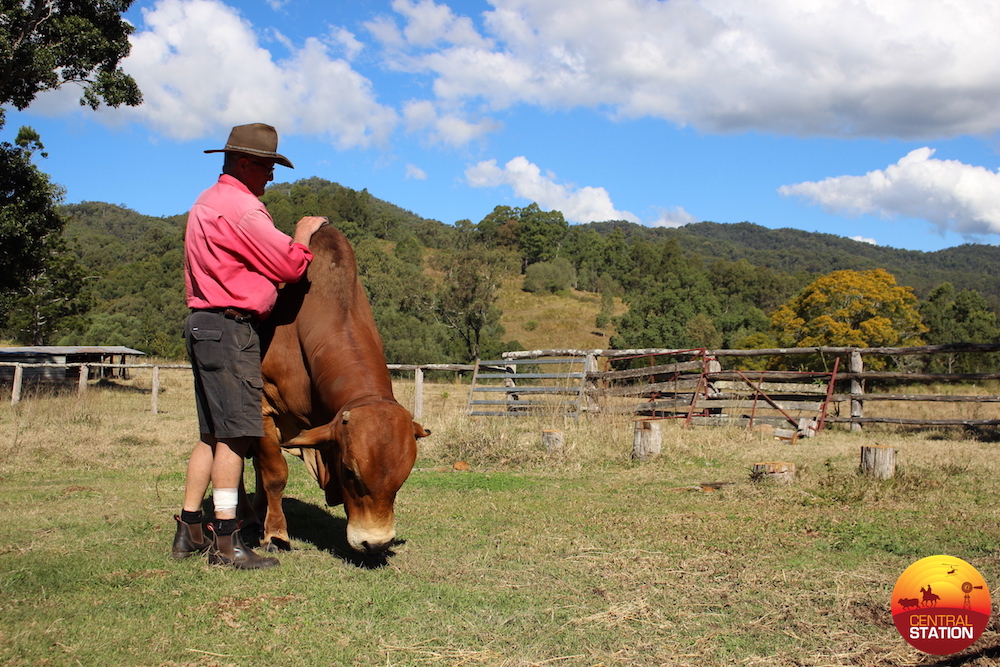
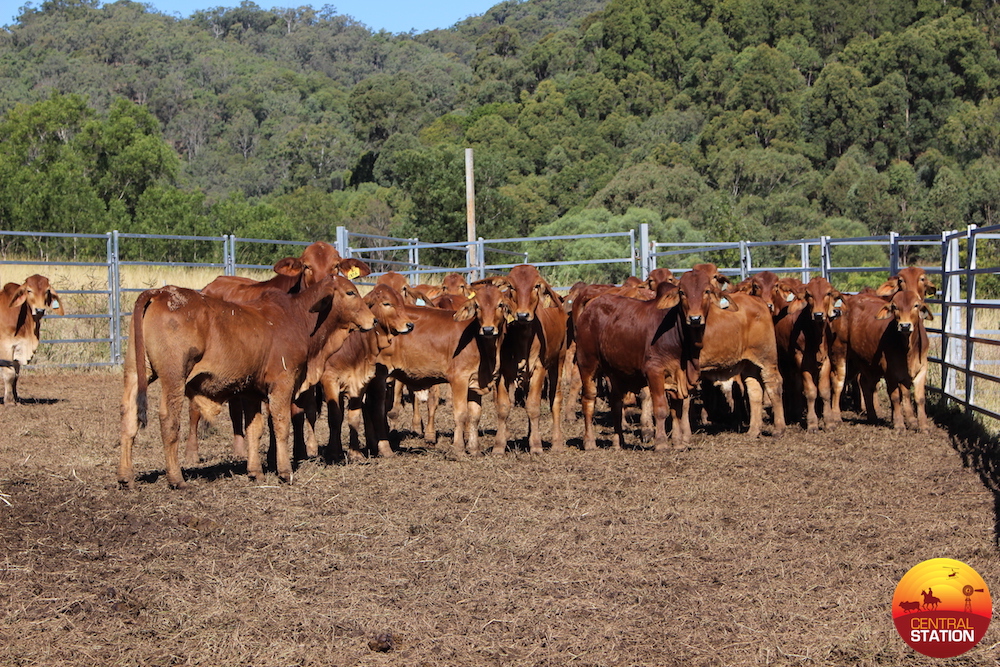
As sustainability gets more and more important to our customers, farmers are not the only member of the agricultural supply chain that are on a path to improving their own sustainability.
No matter where you look in the supply chain, they are all proudly improving their own sustainability.
You cannot visit any company without hearing how they are innovatively improving waste practices, reducing water use, adopting the highest animal welfare standards, and using livestock traceability systems that are the best in the world.
Recently I was lucky enough to go on a ‘McDonald’s Supply Chain Tour’ with Agrifoods Global, Keystone Foods and McDonald’s. Agrifoods Global covers the beef raw material supply chain from purchasing, logistics, finance, quality assurance, communications and administration. Agrifoods Global supplies McDonald’s in Australia, New Zealand, some parts of the Asian region and the US. McDonald’s is the largest purchaser of beef in the world and AgriFoods Global is one of the largest buyers of Australian and New Zealand beef. In 2017, McDonald’s purchased 70 million kilograms of Australian beef for the local and export market, with 61% coming from Queensland abattoirs.
To start the day, we went to the new Queen Street McDonald’s, the flagship restaurant for Brisbane, to see how the stock comes in to the store and how breakfast is prepared. We even got to make our own sausage and egg McMuffins.
At McDonalds making our McMuffins.
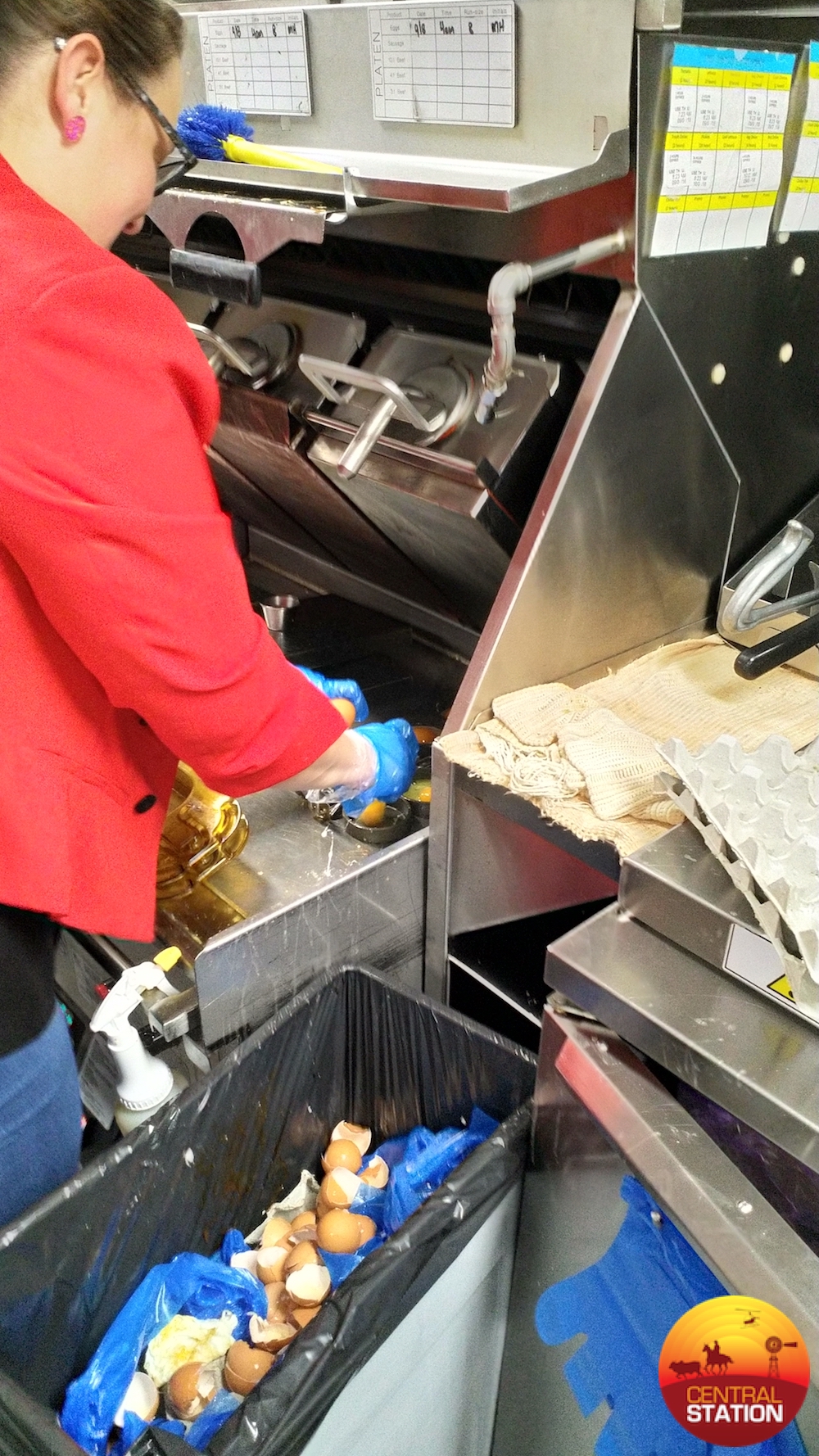
McDonald’s is aiming to improve its sustainability in several ways, from experimenting with paper straws, to working with suppliers to ensure consumer facing packaging is made from 100% recyclable material. McDonald’s is also committed to working collaboratively with producers, from those that source 100 million kilograms of potatoes for the fries to the graziers that supply their most iconic ingredient, the beef. McDonald’s is working with the Red Meat Advisory Council, industry and farmers to support and take key learnings on beef sustainability as they develop the beef sustainability framework. McDonald’s goal is to continue to support the industry and its programs, as they continue to develop innovative sustainable farming practices and share learnings with the farming sector and key stakeholders.
After breakfast we went out to JBS’s abattoir in Dinmore. There we saw the beef carcasses boned, sliced and packaged, and heard about JBS’s journey to improved sustainability. They have a keen focus on improving their water and electricity consumption – running a 24-hour operation with intense cooling and heating needs means that any small change can make a major improvement. Changes such as water that is reused, starting as potable in the carcass area, being reused in their cooling systems and then reused again in the hide treatment system. JBS went from using 4 million litres of water to using 2 million litres of water, an amazing improvement.
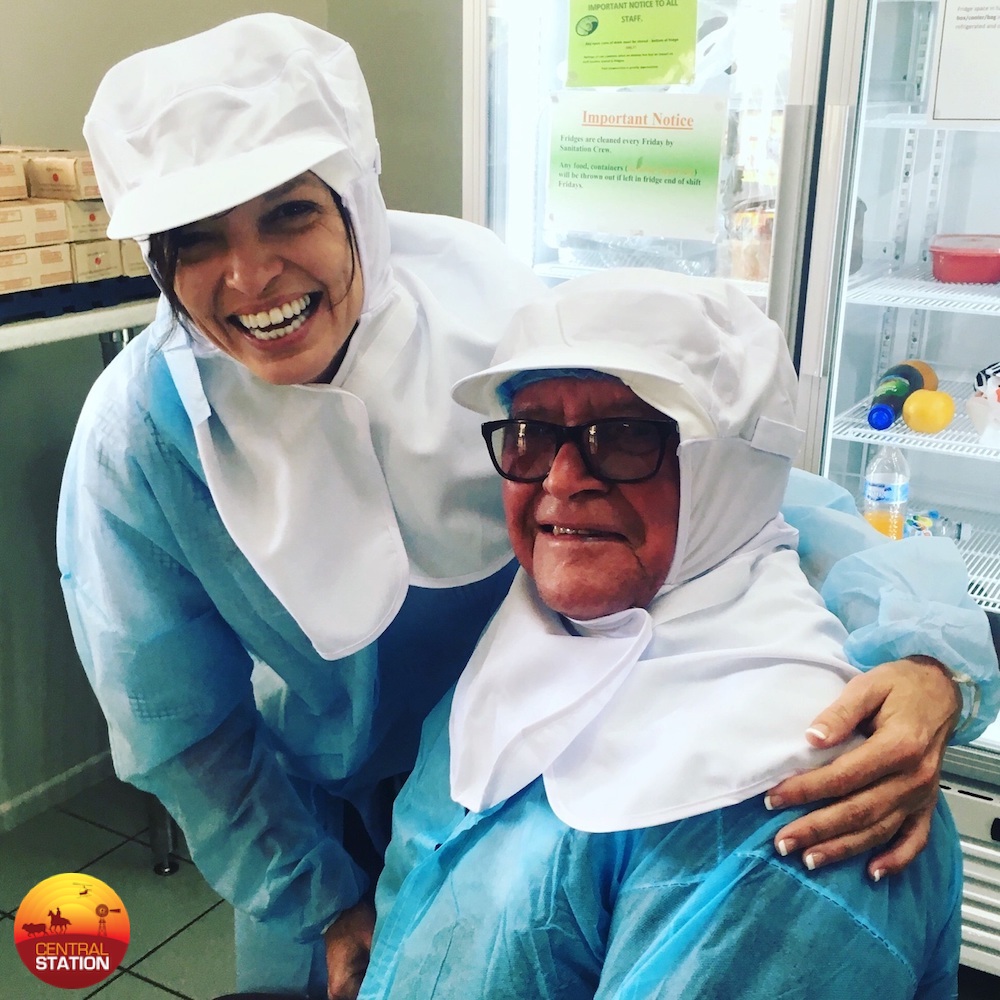
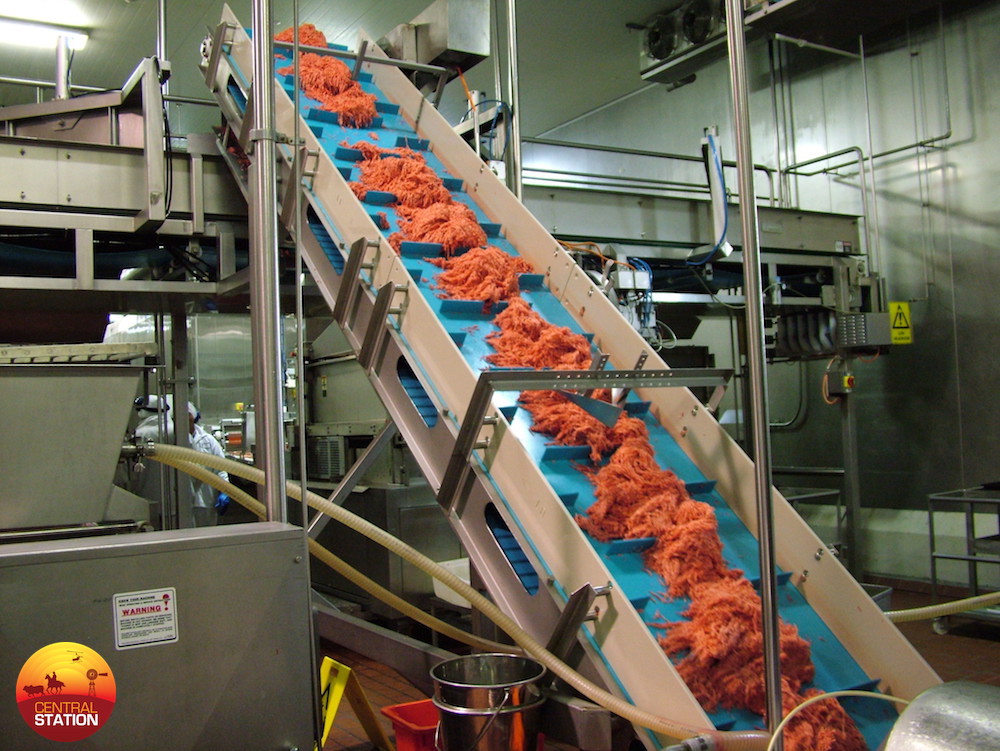
After lunch, we went to Keystone Foods where we saw the meat that JBS had cut up get grinded and turned into patties for McDonald’s. I was fascinated by the process in which the burger patties are bound together by 150psi of pressure – no need for eggs, flour or any other binders – the McDonald’s patties are 100% Australian beef. Keystone Foods has a zero waste to landfill policy, it is extraordinary that a site that employs 115 people and produces 20 million kilograms of McDonald’s patties has no need for a landfill!
It is inspiring to see how the beef supply chain is working continuously to improve its sustainability – from farmers to abattoirs to grinders to restaurants – everyone is doing their bit to improve the future of the industry.

